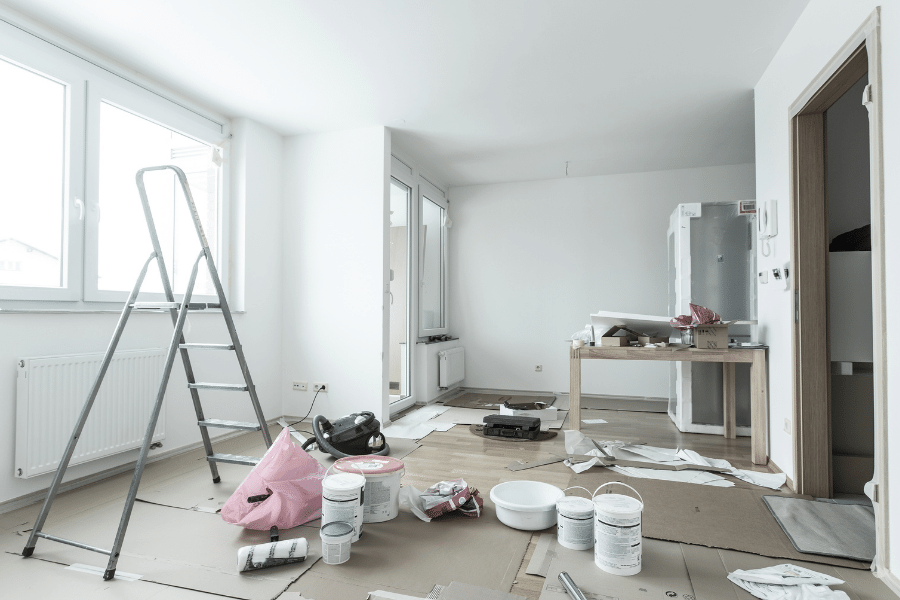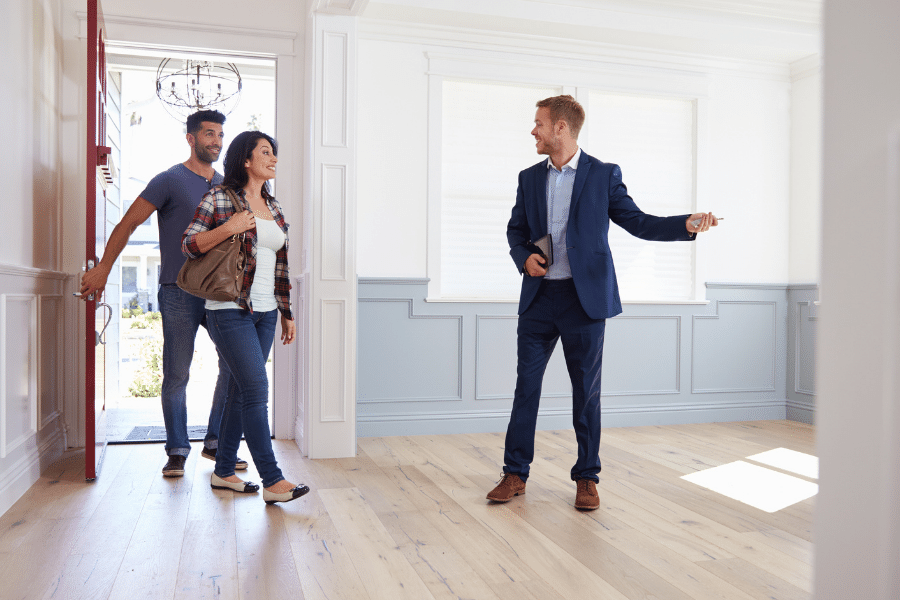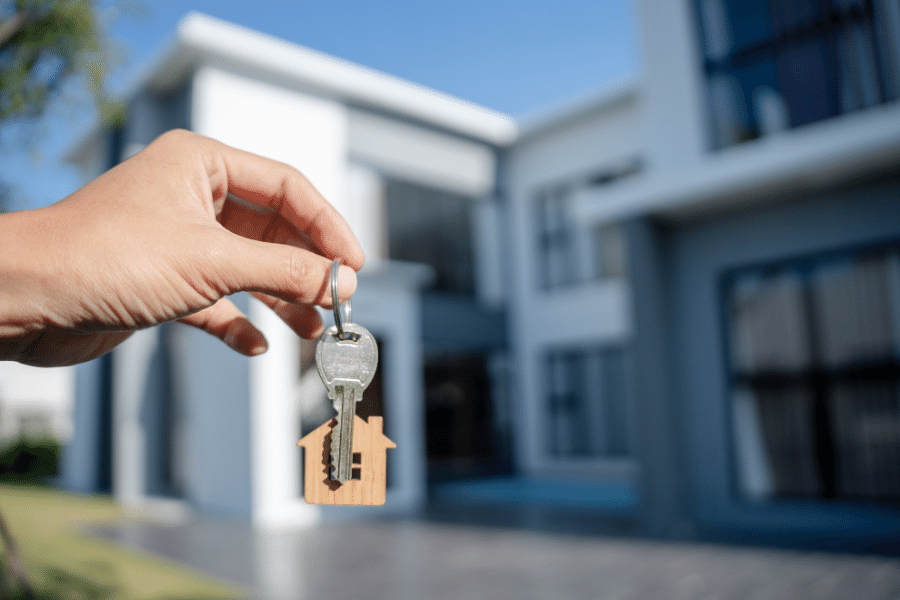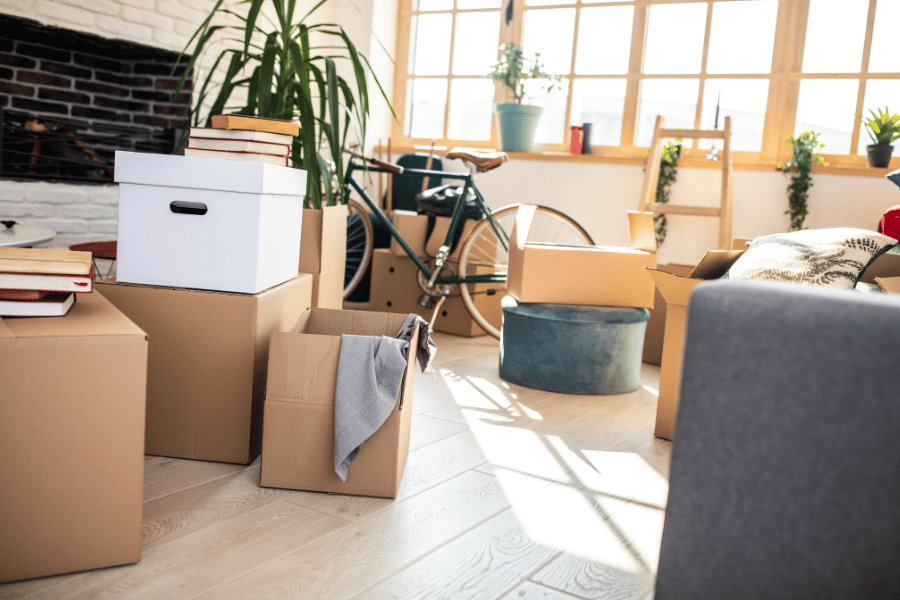Common Home Selling Mistakes to Avoid
Are you looking to sell your home and want to know the most common mistakes to avoid? Check out our guide to help you through the selling process.
Selling your home can be a daunting experience, especially if it's your first time. But don't worry; there are many ways to make the process easier and faster while avoiding costly mistakes.
There are several essential steps and tips to follow when selling a home fast, many of which can be addressed before they become an issue. While it's expected to make small mistakes in the home-selling process, these errors can have a significant financial impact and cause other problems.
Although there will always be challenges and mistakes during the selling and buying process, it's essential to avoid certain ones for everyone's sake. Whether you're interested in selling your home or buying a new one, it's always a good idea to consult with an agent, gather information, and know what to look for.
In order to optimize your home buying and selling experience, sellers should ask questions. Learning about common mistakes made during the selling process and how to avoid them in the future can be helpful.
Here are the ten most common mistakes to avoid.
1. Not Expecting Home-Selling Costs
When it comes to selling and buying a home, many different costs go beyond the home itself. Although the total cost of the house may seem like the only price to look at, you need to consider closing costs, repairs, painting, and many other expenses.
It's essential to keep up-to-date with the current trends and prices in your specific area and your needs since the real estate market constantly changes. When you add up all these expenses, it may seem overwhelming, but it shouldn't be. You can get an excellent real estate agent to help you navigate these concepts and prices. Here are some of the typical costs that go into selling a home:
Closing costs: When finalizing a real estate transaction, it is customary for sellers to cover the closing costs, which generally range from 1-3% of the home price. These costs may include taxes, title transfer fees, attorney fees, and other related expenses.
Staging costs: Staging a home can vary depending on the size, how many rooms are staged, the type of decor used, and other factors. On average, if you choose to produce the home yourself, the cost will be around $500. However, the price may be slightly higher if you hire a professional staging service.
Home inspection: Before listing your house, it is highly recommended that you consider getting it inspected. This can significantly benefit both you and potential buyers, as it can help identify any issues that may need to be addressed and provide a clear understanding of the property's condition.
Seller concessions: When selling a house, it can be helpful to sweeten the deal by offering incentives like paying for closing costs or including appliances. These extras can be especially advantageous in a buyer's market.
Moving costs: Many factors come into play when determining the cost of moving, such as the distance, amount of items to be transferred, and duration of the move. Considering all available options is essential, as moving companies can be costly.
2. Selling Without An Agent

Many people make the mistake of not using a real estate agent and going the FSBO (For Sale By Owner) route. Selling your home yourself may seem like an excellent way to avoid commission and other costs, but it can lead to many issues, such as missing essential steps and paperwork, causing undue stress, and losing money.
Realistically, only a real estate agent can provide you with the market knowledge and expertise to help you sell your home efficiently. In 2022, the typical FSBO home sold for about $225,000, while a home sold by an agent was worth $345,000. This is a significant price difference; even though you might avoid paying commission, you could lose more money.
It is always better to be safe than sorry, so hiring an experienced agent to guide you through the home selling process is recommended instead of taking everything into your own hands. This way, you can avoid making unnecessary mistakes and ensure everything goes smoothly.
3. Selling At An Unrealistic Price
Selling your house is undoubtedly one of the most significant financial decisions you will make. Naturally, you would want to make the most profit out of it.
However, the value of the property and how prospective buyers perceive it are crucial factors to help you determine a reasonable price. Overpricing your home could lead to lowering it later, resulting in fewer buyers showing interest.
Pricing a home can be challenging, and it depends on several factors. Pricing too low can result in missed opportunities for more profit, while pricing too high can turn off potential buyers. To determine the best listing price, it's essential to ask your agent to analyze what similar homes in the area are selling for.
Setting the right price for your home is vital and can significantly affect how quickly you sell your home.
4. Ignoring Major Repairs
When listing your house for sale, it is essential to be honest and transparent about any issues or problems it may have. Trying to hide or ignore major repairs will only hurt your chances of selling the property. Buyers will eventually find out about any issues, and a long list of significant repairs can potentially decrease the value of your home.
It is crucial to disclose any known issues and fix them promptly. Although renovations and repairs may seem expensive, setting what's necessary can raise your home's value and attract potential buyers. Ultimately, it can be more profitable than hiding or downplaying any issues.
While some people prefer to do the renovations and repairs themselves, not everyone has the skills or expertise to do so. It is not worth the gamble, and it is always better to hire a professional to ensure the job is done correctly.

5. Limiting Showings
Once you put your home on the market, scheduling showings for potential buyers is essential. The goal of showings is to accommodate as many buyers as possible. Therefore, having as many open houses and showings as possible is necessary to maximize your potential clients.
Although it may seem inconvenient to have people in your home and make it available on weekends, realistically, many people cannot take time during the week to view the home. Thus, making it available to a larger population and scheduling multiple times to view the home will increase your chances of selling it. Though this might be hard if you sell a home with kids or during a divorce, the results will be worth it.

6. Keeping Clutter
Presenting the home and all its space is essential when selling, even if it's hard to remove personal items while still living in it.
Clutter can take up a lot of space, and space is one of the main factors that can help a home sell faster. There are two significant ways that clutter affects the selling process of a home: it distracts potential buyers from the home's features and makes the house look cramped and uninviting. Don't forget about the exterior of your home to boost curb appeal.
Decluttering your home may be one of the most challenging tasks because it takes time, but it is also one of the most crucial tasks to take care of, as it significantly impacts the selling process. No one wants to walk into a cluttered house where they can't even see the home's beauty due to the numerous random knick-knacks scattered around the home.
Even though the clutter may appeal to you and fit your personality, not everyone will have the same taste. Therefore, if you are serious about selling your home quickly, you should eliminate all the random belongings around the house for now.

7. Selling As-Is
Selling a home "as is" is generally not the best approach. It is not wise unless you target investors interested in flipping properties. Most homebuyers are looking for move-in-ready homes and prefer to see a blank canvas that allows them to envision themselves living in the house.
Some of the most effective ways to achieve this include decluttering, cleaning, using neutral colors, updating appliances, or making necessary repairs. While preparing your home for sale may seem inconvenient, doing so can help you attract more buyers and stand out in a competitive market.
Skipping any essential steps can slow the selling process, so it's important not to cut corners if you want a fast and easy transaction.
8. Not Prepping Home
Preparing your home is crucial in the selling process for several reasons. Cleaning, decluttering, and decorating your home will make it look more appealing to potential buyers and not harm its value.
On the other hand, performing any necessary repairs or renovations is essential to ensure the house is ready for sale. You need to do many different things before listing your home to ensure it is prepared so the home-selling process can be completed successfully.
9. Only Considering The Highest Offer
While the highest offer may seem exciting, it might not always be the best option for you. Many common sales have contingencies that must be satisfied to close, and some protect the buyer's interests. Therefore, being aware of these contingencies is essential as they can significantly impact the sale.
When considering the timing and other offers, it is essential to remember that the highest offer may not always be the best one for you. It is crucial to think about why the highest bid is so high and what other buyers are proposing in the sale. Other offers may benefit you more than you think, so paying attention to them is best.
10. Using Bad Listing Photos
When it comes to selling your home, keep in mind that the first impression counts. Nowadays, most people search for homes online and view the photos before they even schedule a visit. Therefore, it's crucial to ensure that the images of your home showcase it in the best light possible.
Hiring a professional photographer is often recommended, but if that's not an option, ensure the photos you take are clear and bright and show the size of each room. Additionally, it's crucial to declutter and clean your home as much as possible before taking photos, as a cluttered space can be a turn-off for potential buyers.

FAQS
What not to say when selling a house?
When selling a house, it is crucial to maintain the depersonalization of the situation. You should avoid sharing personal details such as the amount paid for the home, how long it has been on the market, why you are selling, how many offers you've received, and other similar information.
What is the biggest regret of home buyers?
There could be many regrets for home buyers, and each experience is unique. Some may dislike the location, neighborhood, or space or not have viewed the home beforehand.
What makes a house harder to sell?
If your home needs any repairs or replacements, such as flooring, mold, or musty odors, many factors could contribute to it. Knowing all the mistakes to avoid when selling a home will help ensure a smooth and successful sale.
Common Home Selling Mistakes - The Bottom Line
Selling a home can be overwhelming, especially for first-time sellers. However, there are ways to simplify the process, avoid costly mistakes, and speed up the transaction.
To minimize issues, it is essential to follow the proper steps, identify potential problems, and take action before they become an issue. Minor errors can have a significant financial impact and cause other problems, so it is essential to avoid them.
Whether selling or buying a home, consulting with an agent, acquiring information, and knowing what to look for is always beneficial. Understanding common mistakes made during the selling process and how to avoid them can optimize your home buying and selling experience.
If you are interested in selling or buying a home, please contact us here or visit our website to connect you with one of our local agents at Raleigh Realty to help you.




